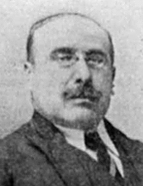

In the chapter on reference works in which Pedro de Azevedo took part, we must add to his two previous important contributions the edition of the first four books of Fernão Lopes de Castanheda ’ s História do Descobrimento e Conquista da Índia [History of the Discovery and conquest of In dia] , as well as the direction of the engravings and maps section of the História de Portugal [History of Portugal] , due to Herculano. However, most of the writings left by Pedro de Azevedo consisted of monographic studies, which generally fall short in quantity and value of the heuristic work he did. However, most of his output is fragmentary and , therefore , difficult to measure, greatly hindering a comprehensive and accurate apprehension of the quality of his intellectual work, which has yet to be brought together and systematised. The bulk of these scattered texts are to be found in periodicals, particularly Archivo Historico Portuguez [Portuguese Historical Archive] , Boletim da Segunda Classe da Academia das Ciências [Bulletin of the second class of the Academy of Sciences] , Archeologo Portuguez [The Portuguese Archaeologist] , t he Anais da s Bibliotecas [Annals of the librar ies ] e Arquivos Nacionais [National Archives] , Revista de História [History Journal] and the Instituto [Institute] , as a result of commissions or regular collaborations with people in his inner circle, such as the aforementioned Anselmo Braancamp Freire and José Leite de Vasconcelos.
Despite his profile as a reserved man, Pedro de Azevedo played a significant role in the intellectual life of his time, and he did not shy away from certain polemics, as was the case, for example, when he wrote a protest challenging the campaign by the newspaper O Século [The Century] against David Lopes, his fellow member of the Academia das Ciências de Lisboa. However, his importance to Portuguese history and historiography must be seen above all in his role as a pedagogue, archivist, historian , diplomatist-palaeographer, and not so much in the field of political or social intervention. His historiographical presuppositions are easy to enumerate: the idea of teaching as an essential vehicle for historical training , accuracy as a requirement for the task of reconstructing the past , valuing archival work as the historian ’ s primary duty , the role of editing and textual criticism as essential elements in the promotion of knowledge.
This work is financed by national funds through FCT - Foundation for Science and Technology, I.P, in the scope of the projects UIDB/04311/2020 and UIDP/04311/2020.
